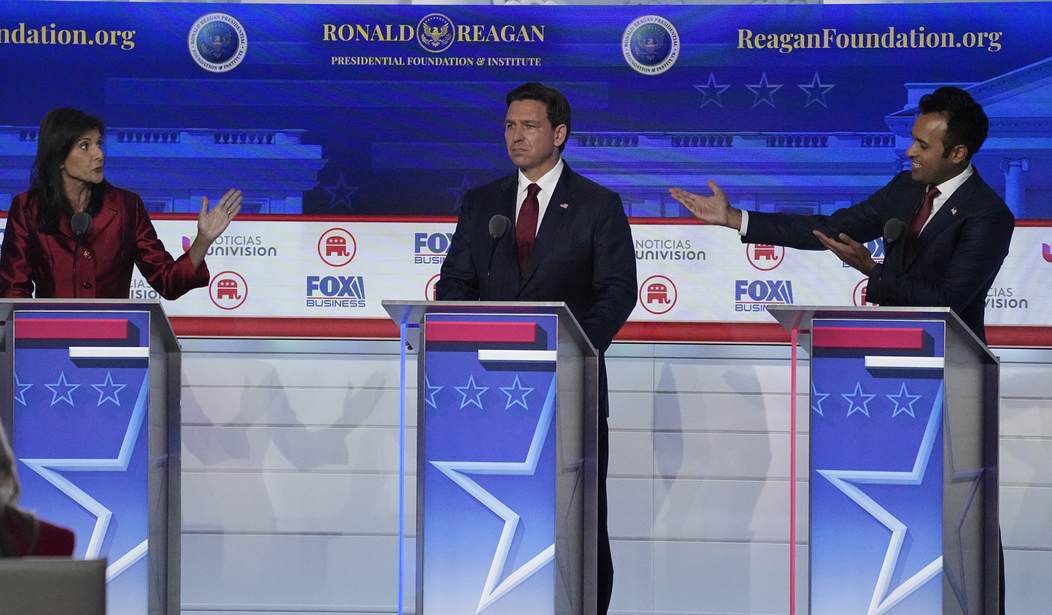During the 2016 election season, there were 22 debates between both parties. In 2020, there were 11 debates for the Democrats with Donald Trump defending his presidency.
Let's face facts. There was no reason to hold that many debates. In fact, by about the third one, I can recall many throwing in the towel and declaring that they have better things to do. Still, many people tuned in during both election years.
And while people began asking the common sense question of why we needed so many debates and not being able to come up with any solid answers, there was an entity with a solid reason, and given the chance they probably would have advocated for more...
...the media.
By the first debate, you can get a pretty solid idea of a candidate's viability. Second debates are also good to have, but only after a solid chunk of time has passed and new issues have arisen that the candidates can be asked about. There can be a third, but perhaps it should stop there. Afterward, there's not much to learn and most people have chosen their camps.
But for the media, every debate is a chance for many benefits. Firstly, there are ads to be sold. When you have millions of people tuning in, you can charge good money to have your brand appear between spats.
Then there's pre and post-commentary for networks that see more people than usual tuning in to get talking head opinions, fact checks, and good ol' confirmation bias.
Then there are the online clips that can be cut and circulated endlessly. People will reference back to these clips for days, putting that news organization's name in front of everyone who sees said clips. This could result in name recognition, profile visits, follows, and more.
There is a lot of money to be made from an election-year debate. The only drawback this season is that the media isn't making as much money as they have previously.
Why? One reason and one reason alone.
Donald J. Trump.
In the 2016 season, tuning into the GOP debates meant watching what effectively boiled down to the Trump show. You never knew what he was going to say and who he would target next. There are Republicans who were candidates during that time that are still suffering from the attacks Trump laid on them during that time. It was a good time that was talked about endlessly at the water cooler, and memes and videos were shared relentlessly online about Trump whether they were positive or negative.
While 2020 didn't feature Trump debating anyone, the entirety of the Democrat platform was focused on being anti-Trump and people were interested in seeing who came out on top because that winner would have to face the Democrat's most hated enemy.
To be sure, the debates during both years had massive effects on the chances of politicians making it to the White House. Kamala Harris might be VP now but for a time she came close to being the DNC's it-girl until Tulsi Gabbard took her out. They do have an effect on how candidates are perceived.
But do we need so many?
No, not really. Debates are good to have, but there comes a point where it starts to feel less like an informative few hours that allow you to get to know a candidate and more like a media circus. Moreover, this media circus is actually kind of boring and silly without its ring leader participating.
If Trump's not participating, then people just aren't that interested.
Case in point, the latest GOP debate declined sharply in viewership according to Politico:
Ratings for the second Republican presidential debate Wednesday are in — and the 26 percent decline is not a good sign for candidates not named Donald Trump.
Around 9.5 million people tuned into the debate, which was broadcast on Fox Business Network and simultaneously played on Fox News, where most people tuned in, and Univision, the network said Thursday. In comparison, almost 13 million people watched the first debate, which Fox hosted at the end of August.
Compare that to the first debate held in 2015 which sported 24 million viewers.
Given, there were quite a few people watching the last debate through online sources such as Rumble, so you can throw a solid chunk of viewers onto the pile from there, but otherwise, it didn't shift the numbers in a massively significant way.
Still, millions of viewers are still millions of eyes capable of seeing ads and commentary.
So while you've likely already made your choice and don't need to see any more, the media is going to do its best to milk these debates for everything they're worth. The more debates, the more money. After about the first couple, these debates are no longer for you, they're for corporations.












